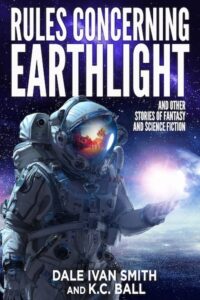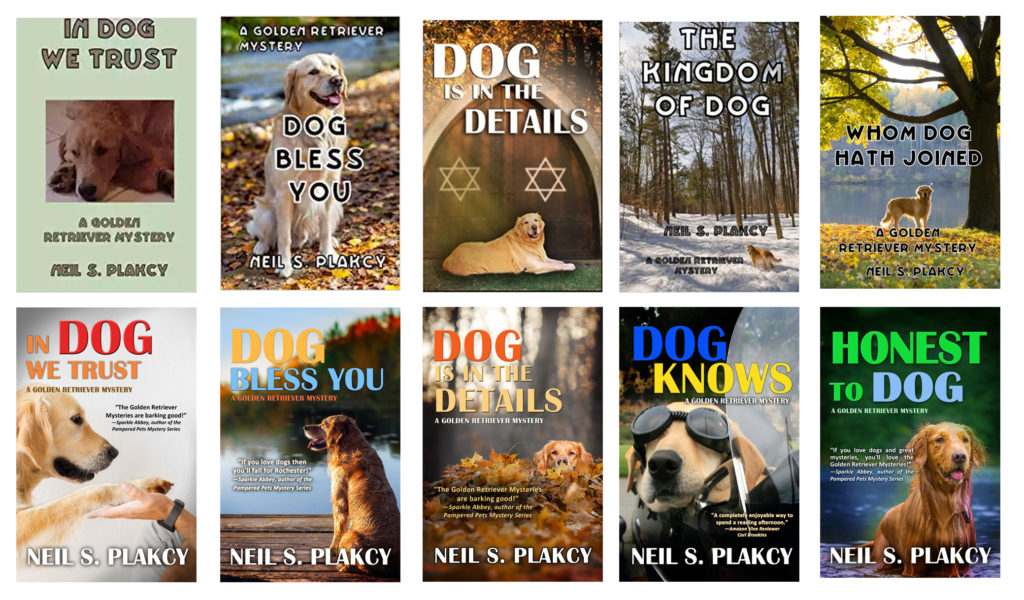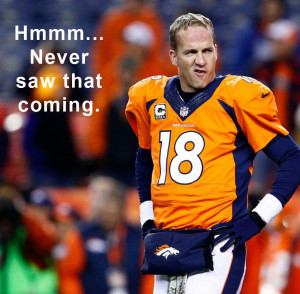One of my writing goals for 2024 is to write more short stories, something I used to do regularly. Early on, that was all I wrote. My first sales were with flash fiction, and my first indie publishing efforts were with short stories in 2012.
Today’s Words of Wisdom gives advice on writing short stories, and ways to publish it. First, PJ Parrish looks at Kurt Vonnegut’s tips on writing short stories. Elaine Vets follows with thoughts on how to get past being blocked when trying to write short. Finally, James Scott Bell shares what a good story does and where to publish short fiction today.
As always, the original posts are well worth reading in their entirety, and are date-linked from their respective excerpts.

When I started this post, I had forgotten that Vonnegut had — despite his disclaimer of having nothing to teach other writers — issued his Eight Tips For Writing a Good Short Story. So of course, I looked them up. I think they work well for any kind of fiction, actually. With a few caveats for us crime dogs, maybe. Some you might have heard before, but they bear repeating:
- Use the time of a total stranger in such a way that he or she will not feel the time was wasted.
- Give the reader at least one character he or she can root for.
- Every character should want something, even if it is only a glass of water.
- Every sentence must do one of two things — reveal character or advance the action.
- Start as close to the end as possible.
- Be a Sadist. No matter how sweet and innocent your leading characters, make awful things happen to them-in order that the reader may see what they are made of.
- Write to please just one person. If you open a window and make love to the world, so to speak, your story will get pneumonia.
- Give your readers as much information as possible as soon as possible. To hell with suspense. Readers should have such complete understanding of what is going on, where and why, that they could finish the story themselves, should cockroaches eat the last few pages.
The first one is great advice no matter what you’re writing — even a memo.
The second one I believe in wholeheartedly. Which is why I gave up on The Americans.
Number three we’ve quoted many times here at TKZ when we talk about motivation. And the deeper you can plumb the depths of what a character wants, the richer your story will be.
Rule four is important. Every sentence should do something, be on the page for a reason. I read somewhere that Vonnegut disliked television, except for Cheers, which he called a comic masterpiece. He said, “I’d rather have written Cheers than anything I’ve written. Every time anybody opens his or her mouth on that show, it’s significant. It’s funny.”
Now, we get to number five, which is critical for short stories but troublesome for novelists, given that we like to flap our gums sometimes before getting to the dramatic point. (ie weather, description, backstory). But if you really think about it, you should never start your novel at too early a juncture. You should always find that prime dramatic moment to drop your reader into the action.
Six is a given. As James says here often, something must be disturbed in your protagonist’s world.
Number seven is about authenticity. If you set out to be James Patterson, you will fail. Yeah, be smart about today’s market, but write the book you were meant to write.
Now the last one is tricky. I am not quite sure what Vonnegut is talking about here. Because on its face, it goes against much of what we talk about here about NOT larding your early pages with too much information. You want some mystery in the beginning. You want to pose questions that beg answers. Maybe Vonnegut is just arguing for clarity in the writing itself? The choreography (moving characters through time and space) must be clear. Confusion should be avoided. Maybe you all can help me out on this one.
P.J. Parrish—March 26, 2019
That happens to every writer. It certainly happens to me. Short stories are hard to write. In some ways, they may be harder to writer than novels. Here are a few tips for when you feel blocked working on your short story:
Think small – and think twisted.
There are good reasons why you can’t continue your short story. You could be blocked because you have too much going to on. In short, you may be writing a 5,000-word novel instead of a short story.
In a short story, you don’t need long, dreamy descriptions of the scenery.
You don’t need six subplots.
You don’t need to tell us your character’s awful childhood – unless it’s vital to the plot.
It’s a short story.
Think small.
Here’s another reason why your short story may be blocked: How many characters does it have?
If your short story has more than four major characters – you may — accent on may –have too many. It’s like being in a small room with too many people. You can’t move.
The short story is a small world.
Don’t make work for yourself. Giving all those people something to do is hard labor.
Think small. Cut back on your characters.
If your story is going nowhere, consider some pruning. Clear out all the extraneous details, the unnecessary characters, the descriptions of the weather.
If you’re still not sure, read the story out loud. Read it to your spouse, or your dog, or your wall. But tell the story instead of looking at it on the page.
That’s a good way to find out what works – and what doesn’t.
Lawrence Block is a master of the traditional short story.
Let me show you what he does in one paragraph – one – in a short story called “This Crazy Business of Ours.” It’s in Block’s anthology called Enough Rope. If you’re interested in traditional short stories, I recommend this anthology.
“This Crazy Business of Ours”
The elevator, swift and silent as a garrote, whisked the young man eighteen stories skyward to Wilson Colliard’s penthouse. The doors opened to reveal Colliard himself. He wore a cashmere smoking jacket the color of vintage port. His flannel slacks and broadcloth shirt were a matching oyster white. They could have been chosen to match his hair, which had been expensively barbered in a leonine mane. His eyes, beneath sharply defined white brows, were as blue and as bottomless as the Caribbean, upon the shores of which he had acquired this radiant tan. He wore doeskin slippers upon his small feet and a smile upon his thinnish lips, and in his right hands he held an automatic pistol of German origin, the precise manufacturer and caliber of which need not concern us.
See how Block establishes a character in one paragraph? That is true economy of writing.
Make sure your story is about what it’s about. In a novel, you don’t have to get to the story right away. You have time to develop it. Time to build. Slowly.
In a short story, you have to hit them and run.
Elaine Vets—December 9, 2021
So what does a good short story do?
To make one strong impression on the mind of the reader, and to make that impression so powerfully that it will leave the reader pleased, convinced and emotionally moved is the principal aim of a good short story. To the production of that one effect everything in the story—characters, action, description, and exposition—points with the definiteness of an established purpose. All else is omitted, and thus all the parts of the story are both necessary and harmonious. Centralizing everything on the production of one effect makes every short story complete in itself. The purpose having been accomplished there is nothing more to be said. The end is the end.
Well now! If I may modestly mention my own book on the subject, How to Write Short Stories and Use Them to Further Your Writing Career, this affirms the “secret” I found by analyzing thousands of short stories. I call it “one shattering moment.”
What that moment is depends on the type of story you write. If it’s a crime or mystery story with a “twist,” that’s one kind of moment, and usually comes at the end (see Elaine’s post on that subject here).
Another type of story is the one that lays you flat with an emotional punch. Here the shattering moment may happen in the middle, as it often does in a Raymond Carver story. The emotional shattering can come at the end, as in Irwin Shaw’s classic “The Girls in Their Summer Dresses.”
Keeping one shattering moment in mind gives you all the direction you’ll need to write a short story worth reading. Just add your own stamp and creativity.
A good short story can be a gateway for readers to discover you and your full-length books. So where can you publish? There are established venues, like Alfred Hitchcockand Analog. These can be hard to crack and take a long time to hear from.
Some authors, like yours truly, use Patreon. (Hey, can I urge you to give it a try? No obligation, and I’d love to hear what you think!)
Many more use sites like Wattpad, Medium, and Comaful. Heck, you can start your own blog just for short stories.
Or why not go right to Kindle? Publish it in Kindle Select, price it at 99¢, and run a free promo every 90 days. Make sure you have links to your website and books in the back matter.
James Scott Bell—January 16, 2022
***
- Do you write short stories? What tips do you have?
- How do you “think small?” How do you get around blocks in doing so?
- Where do you publish your short stories?
 My story collection Rules Concerning Earthlight is available in ebook and print. Stories of the science fictional, and stories of the fantastic including:
My story collection Rules Concerning Earthlight is available in ebook and print. Stories of the science fictional, and stories of the fantastic including:
- A young man lives alone on the far side of the moon, an artificial intelligence his only friend and companion.
- A hex-slinger encounters his dead wife, sword in hand, standing at a twilight crossroads.
- A young woman in prison for having superpowers is tested.
- A former Martian marine and her brilliant husband investigate a mystery on a colossal space station orbiting Saturn.
- A traveling medicine show where real magic happens faces evil in a frontier boomtown in 1901.









